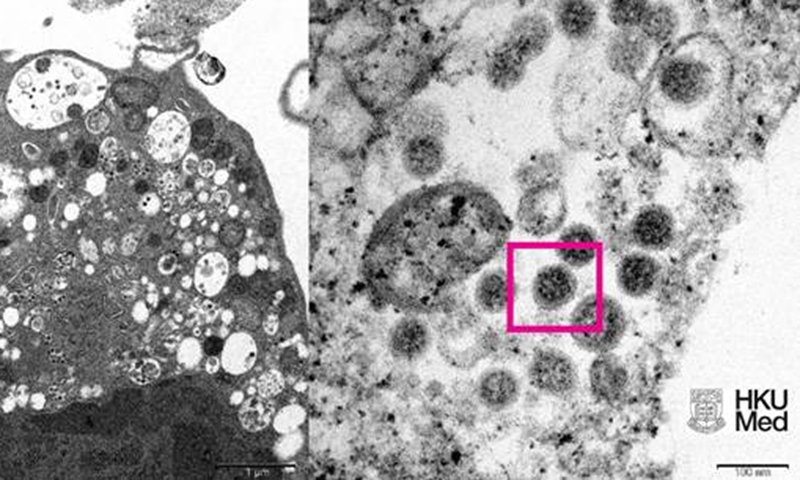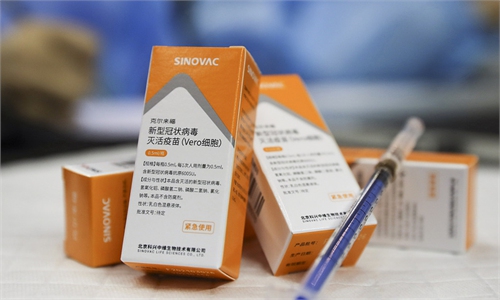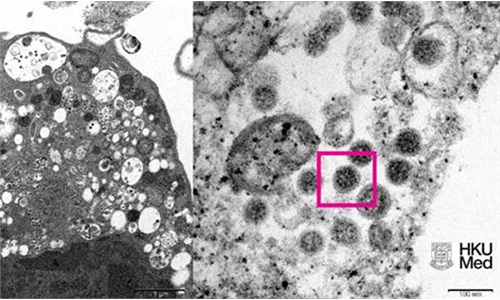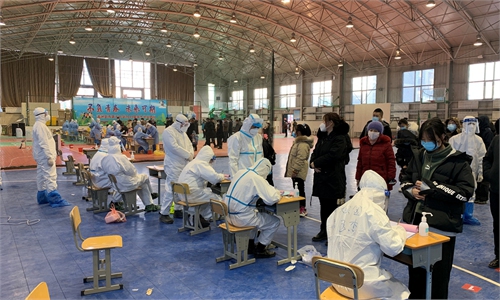China has sufficient technical capability to handle Omicron amid its 3 scenarios of future transmission

HKUMed reveals the electron microscope image of SARS-CoV-2 Omicron variant. Photo: HKUMed
Three scenarios of the future transmission of Omicron variant were suggested by China's leading infectious disease specialist Zhang Wenhong during a forum, assuring that China has sufficient technical capability to deal with the COVID-19 variant.
Zhang shared his views via video on how Omicron might spread in three scenarios of different levels during the Greater Bay Science Forum 2021 in Guangzhou, South China's Guangdong Province.
The best situation is that with a weak toxicity, Omicron will only spread in South Africa where it was first identified. Another situation is that despite it having strong transmission and toxicity, the booster shots may work on it. The grimmest situation is that the Omicron has strong transmission and toxicity and the booster shots prove to be ineffective on it.
"Then we need to rethink the vaccine strategies and tighten our prevention and control measures," Zhang noted, assuring that China has sufficient technical capability to deal with the variant.
Zhang compared the COVID-19 epidemic with the SARS epidemic in 2003 and the H7N9 bird flu in 2009, both of which were contained in a relative short period of time. But the COVID-19 pandemic has brought humankind into a new phase of the game with the virus.
"Experience gained during the combats with SARS and H7N9 cannot be used in this battle and there is still great uncertainty about the global epidemic at present," Zhang said.
Besides, since many animals in nature have begun to carry the COVID-19 virus, people have lost the opportunity to eliminate the virus completely at an early stage, Zhang noted.
Zhang also analyzed the different modes in the UK, Singapore, and Israel to fight the epidemic. The mode of full vaccination and dynamic openness adopted by Singapore is well echoed with China's dynamic zero-COVID strategy, both of which are short-term response strategies in line with the actual situation of each country and are not going extreme.
Whereas Israel has done a good job in controlling fatality cases and the incidence rate with its mode in which an open policy was implemented after the completion of the full two-dose vaccination while rapidly promoting booster shots.
"Thus, booster shots will give us new hope," Zhang said.
Global Times



